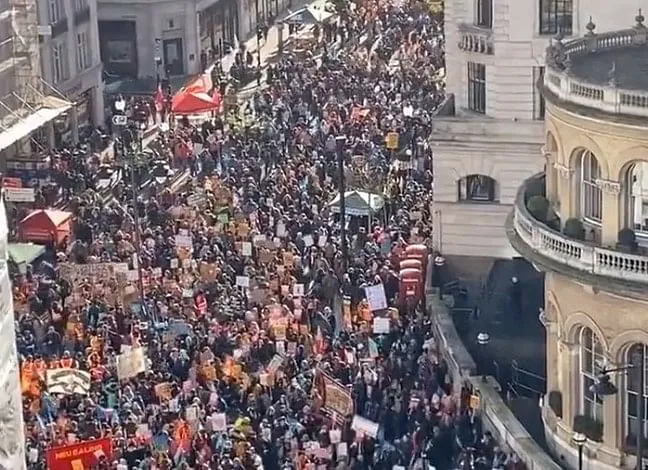London: Up to half a million teachers, university staff, train drivers and civil servants in the UK went on a strike in the largest coordinated action for years amid high inflation and lengthy disputes over pay.
On Wednesday, members of the National Education Union in England and Wales walked out in the first of several days, affecting 23,400 schools, reports Xinhua news agency.
The union said there is a crisis of recruitment and retention within the school system and that the government must address a decade of falling pay.
Around 70,000 staff at 150 universities across Britain were on strike in the first of 18 days in disputes over pay, working conditions and pensions.
Their action will impact 2.5 million students through February and March, the University and College Union said.
“Staff aren’t asking for much. They want a decent pay rise, secure employment and for devastating pension cuts to be reversed,” said Jo Grady, general secretary of the college union.
Train drivers from the National Union of Rail, Maritime and Transport Workers (RMT) at 14 rail operators were also expected to strike on Friday over pay and conditions.
“Our negotiations will continue with the rail operators to create a package on jobs, conditions and pay that can be offered to our members,” RMT general secretary Mick Lynch said.
Also on Wednesday, around 100,000 members of the Public and Commercial Services Union, employed by over 100 different employers in the civil service, walked out as part of the union’s national campaign on pay, pensions and jobs.
The strike “will be the largest civil service strike for years and signals a significant escalation of industrial action after a month of strikes”, the services union said.
In response, a spokesperson for Prime Minister Rishi Sunak said the strikes would disrupt people’s lives, and negotiations rather than picket lines are the right approach.
Over the last year, the UK has witnessed record-high inflation. The consumer price index rose at an annual rate of 10.5 per cent in December, and the cost-of-living crisis continued as food inflation remained historically high, official figures showed.







